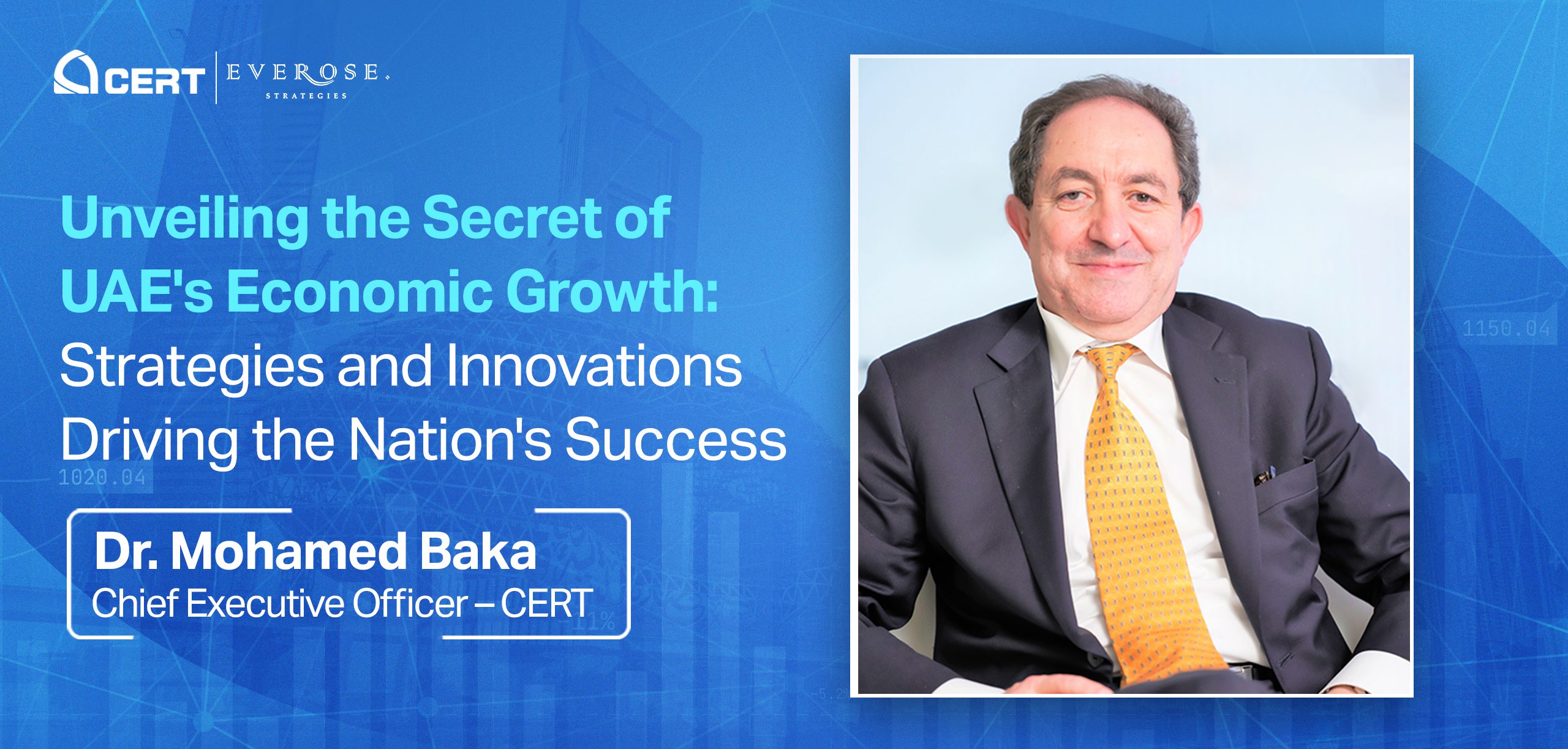
The Secret of the UAE’s Economic Growth: Human Capital Development
By Dr. Mohamed Baka
Human capital development is a critical aspect of economic growth and competitiveness in the modern world. In the United Arab Emirates (UAE), the government has made significant investments in education, training, research, and social services to create a highly skilled and educated workforce that is capable of driving economic growth. This investment has played a key part in the country’s emergence as a global economic powerhouse over the past few decades. This article will summarise the various aspects of human capital development and its economic implications in the UAE.
Education is crucial to the development of human capital as it enables individuals to acquire the knowledge, skills, and abilities necessary to contribute to the economy. The UAE has established several top-class universities and colleges, such as the Higher Colleges of Technology, which attract top talent. The government has also invested heavily in primary and secondary education, ensuring that the nation’s youth have access to high-quality education that prepares them for the challenges of the future.
Workforce development is another critical aspect of human capital development. The UAE’s National Agenda 2021 and Vision 2030 emphasise the need for a highly skilled workforce to drive economic growth. The government has implemented various initiatives to train and upskill Emiratis, including vocational and technical training programmes.
The Centre of Excellence for Applied Research and Training (CERT) is one of the institutions that help bridge the skills gap, and provide workers with the skills and knowledge needed to succeed in today’s ever-changing job market. Dr. Mohamed Baka, the CEO of CERT, notes that “investing in people is the cornerstone of progress and development in the UAE. Empowering the youth with education, skills, and opportunities builds a strong foundation for the nation’s future prosperity and success.”
Innovation is another critical aspect of human capital development. The UAE has launched multiple initiatives to foster a culture of innovation, such as establishing free zones that attract international businesses and talent, spurring innovation in the technology, renewable energy, and finance sectors. The UAE has also established innovation centres and incubators to support local start-ups, thus promoting a knowledge-based economy.
Entrepreneurship is also an important aspect. By investing in human capital development, societies can foster a more conducive environment for entrepreneurial activities. The UAE has focused on promoting entrepreneurship to create more job opportunities, stimulate economic growth, and diversify the economy. Initiatives have been set up to support small and medium-sized enterprises (SMEs) with financial and non-financial assistance, which has led to an increase in the number of SMEs, contributing significantly to the country’s GDP.
Challenges remain, however; for example, there is a need to ensure that Emiratis are not only included in the private sector but also provided with equal opportunities for career advancement. Additionally, there is a need to continue to address the skills gap and ensure that the workforce is adequately trained to meet the demands of the job market.
Investment in human capital development has numerous economic implications that are critical to long-term economic growth. Firstly, it promotes economic diversification by reducing reliance on a single sector or industry. Investment in various sectors ensures that the economy is better positioned to withstand economic shocks. Secondly, a skilled and educated workforce is essential for increasing productivity, leading to a higher rate of GDP growth and improved living standards. Thirdly, initiatives promoting innovation and entrepreneurship have helped create more job opportunities, reducing unemployment and contributing to overall economic growth. Lastly, a skilled workforce, a business-friendly environment, and a focus on innovation make countries attractive destinations for foreign direct investment, further boosting their economies.
